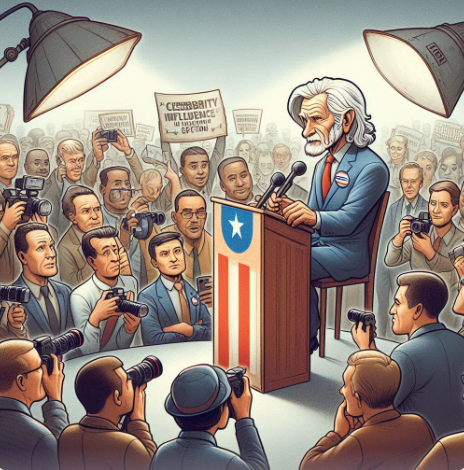I Am Still Confused
By Jim Bauer
@porwest (111875)
United States
August 1, 2025 6:59am CST
For years Democrats thundered from the podium about "making rich corporations pay their fair share." They railed against big business offshoring jobs for cheap labor, leaving American workers in the dust.
But now? I'm starting to wonder if it was all just smoke and mirrors. Here's why.
There are two simple truths to consider; who actually pays when you hike corporate taxes, and what does that do to American jobs?
Fast forward to today—the same Democrats are panicked over tariffs, calling them inflationary. But the irony? Whether you slap a tax or a tariff on a company, the cost gets handed right back to consumers. Us.
Now they say, "We'll end up paying for the tariffs." Fair enough. But didn't they realize the same would've happened if we'd raised corporate taxes? The bills always land on our doorsteps because businesses do not pay their costs of doing business. They pass them on.
They once championed American labor and blasted companies for offshoring jobs. Yet tariffs—the very thing that could incentivize companies to bring manufacturing back to the U.S.—now have them clutching their pearls.
Here's the logic: If it costs the same to produce something in Ohio as it does in China, why wouldn't you make it here?
Trump saw that imbalance clearly. When Walmart becomes your biggest employer and we're chasing the idea of a "livable wage," then we need more jobs that can actually offer one.
If anyone should be backing tariffs, it's the labor-loving, anti-fat-cat crowd. Tariffs protect jobs, grow the tax base, and ease pressure on everyday taxpayers.
Now, to be clear, I'm not blindly endorsing tariffs. But I get the rationale, especially in Trump's case. Global trade skyrocketed, and American workers got left behind. Jacking up corporate taxes wouldn't fix it. It'd just push companies further away.
Bottom line? Just about everything the Democrats pushed was inflationary. Raise wages—prices rise. Hike taxes—prices rise.
Add tariffs—yep, prices rise.
But here's the distinction: If you've got strong jobs with real earning potential, wages climb organically, aligned with productivity and profitability. And when everyone is making more, the sting of higher prices is easier to absorb.
That was their own argument during the $15 an hour debate. "Sure, costs might go up, but people will earn more too."
So, why doesn't that same logic apply to tariffs?
The uncomfortable truth is, Trump's approach might actually deliver the very outcomes Democrats claimed to want. Better jobs, stronger wages, and a revitalized workforce. The kicker? It wasn't their idea.
And let's be honest. Here's where things get darker. Maybe strong labor and higher wages were never the real goal. Because the struggling voter is a loyal one. Dependency breeds political power. The social safety net is only useful when people need catching. But if folks are back on solid footing, they stop looking up for help. And the net, and those who wield it, start to lose their grip.
The Democrat's argument against tariffs has nothing to do with inflation. Their own policies all promoted that. It has to do with potentially actually fixing the problem.
2 people like this
1 response
@porwest (111875)
• United States
1 Aug
The question is, what conditions did India pose on the United States and what were the other factors that caused us to consider things were imbalanced? The fact is, the United States essentially gave India a free ride to export what they wanted to into the United States, while American goods imported into India were charged MASSIVE duties (tariffs).
Why should India be able to export their products into our country duty free and yet charge us massive duties to send stuff to India?
That's not fair.
At the same time, there has always been a massive trade deficit with India. India exports tons of product and services to the United States but India accepts very little back FROM the United States.
That's not fair.
India also has a strong relationship with Russia, and Trump takes issue with that. Especially considering the war against Ukraine which, India's support directly or indirectly is SUPPORTING.
India thought it was on solid ground with the United States. And it seemed to be relatively true. But again, that's from a long era when the United States was okay with the way things were, and of course India was okay with it because they received the biggest gain from what was going on.
They were getting their high tariffs. They were getting to send products to us duty free. All was good to THEM because they were getting the best deal while the United States was getting screwed. Trump figured that out, said no, and India felt slighted.
You know, think of it this way when you consider the "view" of the good relationship we had together. Let's say I am renting someone's house and he's charging me $700 a month when the rent is actually supposed to be $1400 a month. Suddenly the landlord says, "Hey, something's not right here," and says, "You gotta pay the $1400 the house is actually worth."
Does that mean our relationship soured? No. It means the landlord got wise to the fact that I was essentially taking advantage of him and he said, no more. I might be mad about the rent increase, but the fact is, that discussion to correct the imbalance should have been initiated long before the rent went up so that both sides were playing fair with each other.
Everyone wants to talk about the tariffs the U.S. has now imposed on India. But no one wants to talk about the massive tariffs India has ALWAYS imposed on US.
1 person likes this






